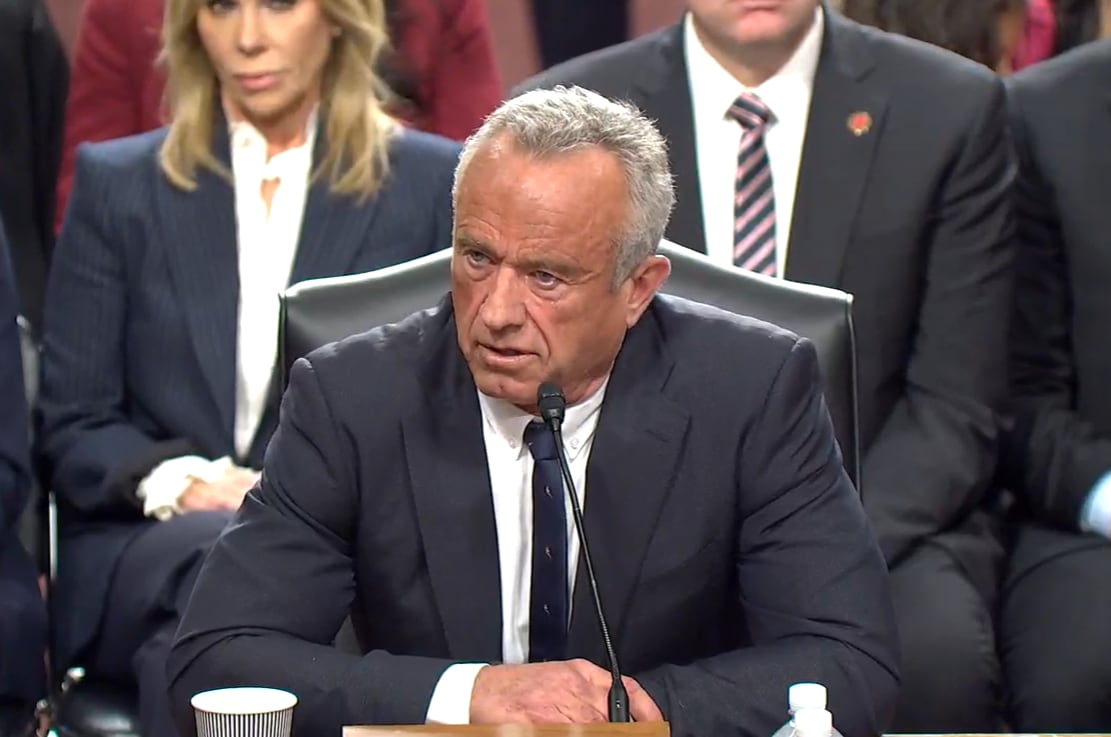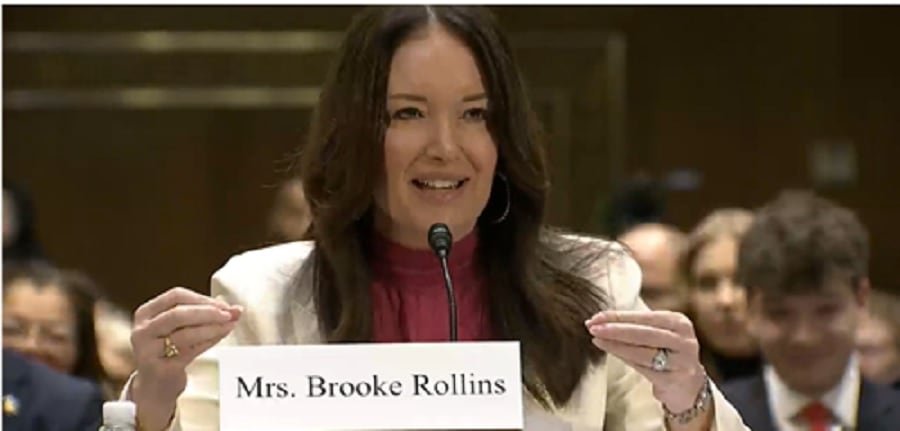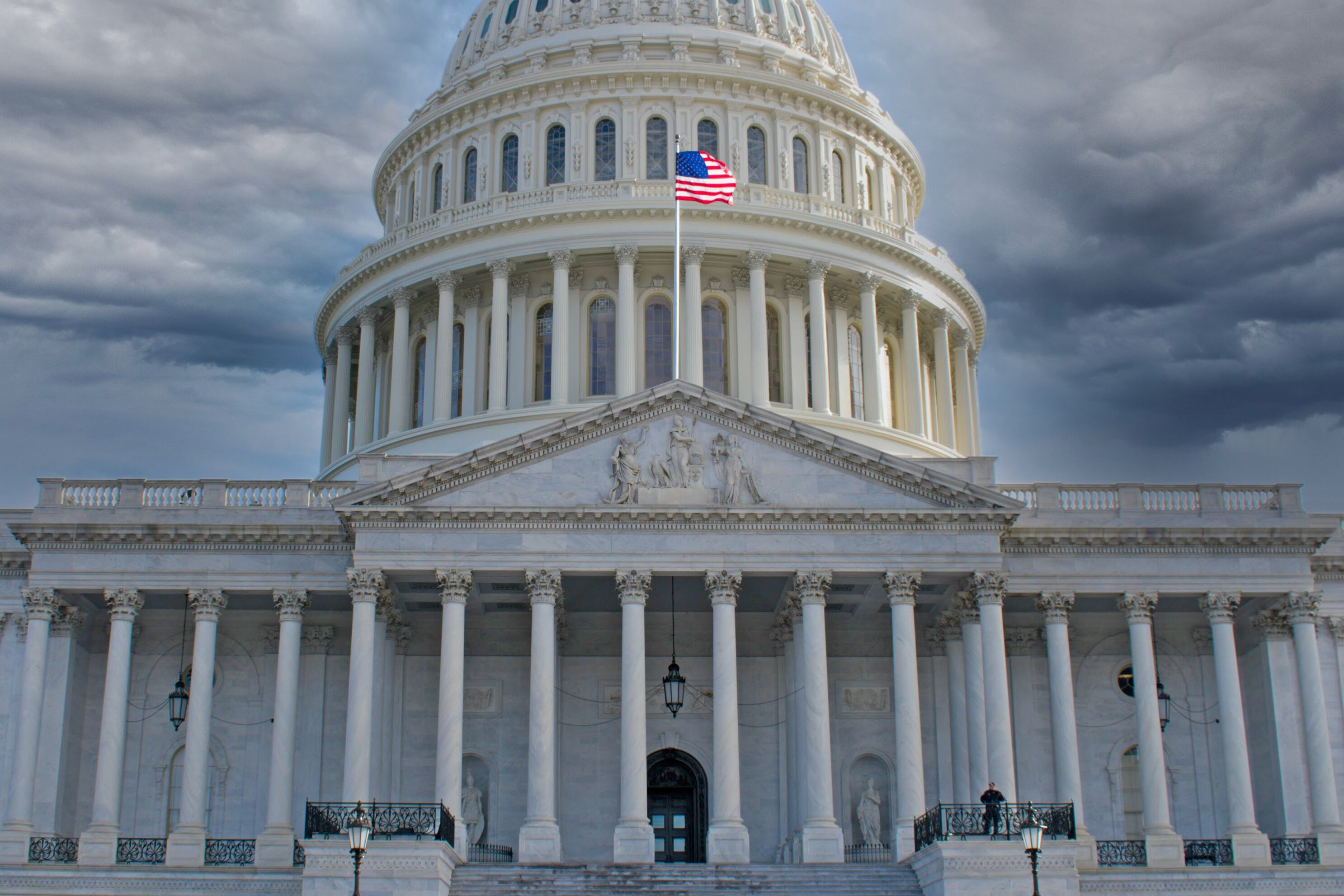Robert F. Kennedy, Jr. laid out in stark terms the health crisis facing the US and advocated for changes in the food system — starting at the soil level — during an often-heated Senate Finance Committee confirmation hearing on Jan. 29.
“Americans’ overall health is in grievance condition. Over 70% of adults and a third of children are overweight or obese. Diabetes is 10 times more prevalent than it was during the 1960s. Cancer among young people is rising by 1% or 2% a year. Autoimmune diseases, neurodevelopmental disorders, Alzheimer’s, asthma, ADHD, depression, addiction and all those other physical and mental health conditions are all on the rise, some of them exponentially,” Kennedy said in his opening remarks, outlining a nutrition-based approach to disease prevention.
“We will make sure our tax dollars support healthy foods. We will scrutinize the chemical additives in our food supply. We will remove financial conflicts of interest from our agencies. We will create an honest, unbiased, gold-standard science at HHS, accountable to the President, to Congress and to the American people. We will reverse the chronic disease epidemic and put the nation back on the road to good health,” he added.
Make America Healthy Again comes to Washington, DC
Environmental lawyer turned wellness advocate and vaccine skeptic, Kennedy fielded questions from both sides of the aisle during the Senate Finance Committee’s confirmation hearing for secretary of the United States Department of Health and Human Services (HHS).
Republicans commended him for his efforts to clean up the food system, during a hearing that was punctuated with several protestor interruptions and applauds for the nominee and senators.
Sen. Roger Marshall, R- Kan., questioned Kennedy about the “epidemic of chronic diseases across the country,” commending the controversial figure for his Make America Healthy Again (MAHA) platform.
MAHA’s wide-ranging agenda advocates for a “comprehensive national strategy to combat the chronic disease epidemic” by “addressing the root causes such as poor diet, environmental toxins and inadequate healthcare,” according to the MAHA website. MAHA opponents question Kennedy’s scientific qualifications and the evidence for these claims.
“Something is poisoning the American people, and we know that the primary culprit are our changing food supply — the switch to highly chemical, intensive processed foods,” Kennedy said in response to Marshall.
Ultra-processed foods and their impact on human health is a hotly debated topic in the food and beverage industry. Some experts claim there is plenty of evidence to connect ultra-processed foods to negative health outcomes, and others argue that “ultra-processed” is too broad of a term that can include numerous healthy foods like yogurts.
The difference between US and UK Froot Loops
Kennedy also called out the practice of many large food and beverage companies of selling products in the US with more ingredients, while selling cleaner versions of the same product in other countries.
“If you buy Froot Loops in our country, they are loaded with food dyes — with yellow dye, red dye, blue dye and many other ingredients. The same company makes the same product with different ingredients for Canada and Europe," Kennedy elaborated.
“And at HHS, we do not have good science on all these things, and that is deliberate. That is a deliberate choice not to study the things that are truly making us sick that are not only contributing to chronic disease, to mortalities from infectious diseases. We need to get a handle on this because if we do not it is an existential threat,” he added.
In response to concerns on various food additives, the FDA is revamping its post-market ingredient review process after industry stakeholders and the FDA itself acknowledged the current approach is “ not systematic, robust or transparent.”
The US version of Froot Loops contains 15 ingredients, including red 40, yellow 5 and 6 and blue 1, as listed on Kellogg’s US website. The UK version of Froot Loops lists eight ingredients and is only colored with carotenes, as reported on Kellogg’s UK website.
Delivering ‘radical transparency’ to Congress and collaborating with USDA
If appointed to the head of the HHS, Kennedy will control “a large portion of our food supply,” but he will not control the entire food ecosystem, noted Rachel Cheatham, founder and CEO at Foodscape Group and Adjunct Assistant Professor at Tufts University.
“When we look at the Dietary Guidelines for Americans that underpin so many policies, school foods and all that, that is also coming from the USDA. And RFK, Jr. does not have USDA under his purview, assuming he gets approved by the Senate,” Cheatham elaborated.
Collaboration between HHS and USDA will be crucial on a number of initiatives, including the Dietary Guidelines for Americans, Kennedy said. Trump instructed Brooke Rollins, nominated to head USDA, and Kennedy to work together on ensuring farmers' livelihood and access to healthy foods, RFK, Jr. noted.
“We are also destroying our soil because some of the chemicals that farmers use destroy the microbiome, and that causes the erosion of the soil.”
Robert F. Kennedy, nominee for secretary of the United States Department of Health and Human Services
Sen. Chuck Grassley, R- Iowa, said he sent letters to the Secretaries of Agriculture and HHS, “requesting that they provide information regarding conflicts of interest on the Dietary Guideline Advisory Committee to increase transparency.”
Previously, Grassley called for members of the 2025-2030 Dietary Guidelines Advisory Committee (DGAC) to disclose any possible conflict of interest. The DGAC provided a list of organizations but removed their connection to specific members, something Grassley said he wants Kennedy to address at HHS.
In response to Grassley, Kennedy said he would support “radical transparency” at HHS. “If members of this committee or other members of Congress want information, the doors are open,” Kennedy added.
Kennedy argues for regen ag focus
Understanding the “very narrow margins” that farmers operate, Kennedy also called out the use of synthetic pesticides and called for incentivizing regenerative agriculture practices, including no-till land and less “chemically intensive” practices to restore soil health.
“We are also destroying our soil because some of the chemicals that farmers use destroy the microbiome, and that causes the erosion of the soil. You cannot get water infiltration. Water pools up and wash the soil off. Agronomists now estimate that we only have, if we continue doing these processes, 60 harvests left before our soil is gone,” Kennedy claimed.
The reference to “60 harvests left” — or 60 years left — originated from comments made by economist Maria-Helena Semedo of the Food and Agriculture Organization during a forum marking World Soil Day. She argued current farming practices are depleting soil nutrients. Many researchers disagree with the claim’s validity.
The food and beverage industry already is investing in regen ag programs, as companies seek to steel themselves from supply chain disruptions caused by global warming.
For instance, food ingredient company ADM incentivizes regen ag practices like adding cover crops, through its Re:generations program. Additionally, PepsiCo and Walmart partnered on a $120 million investment in regenerative agriculture in 2023.





